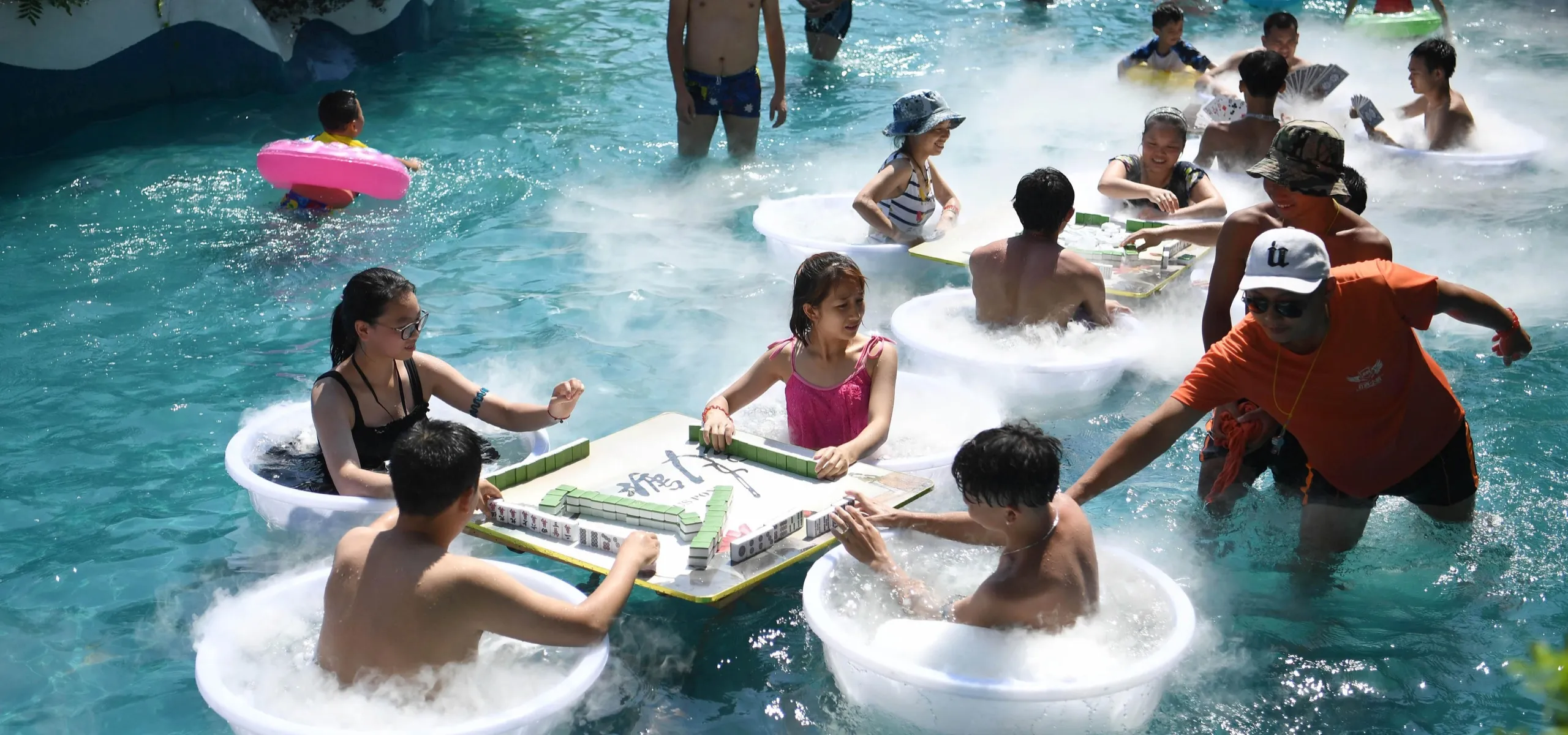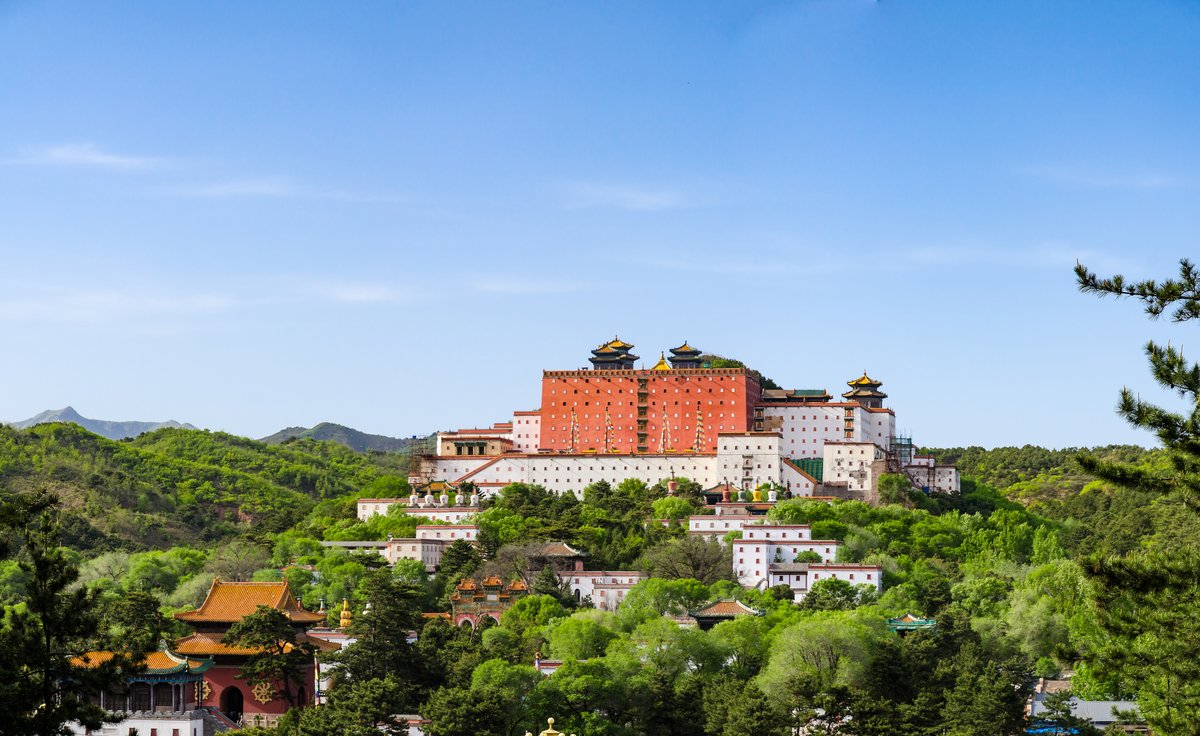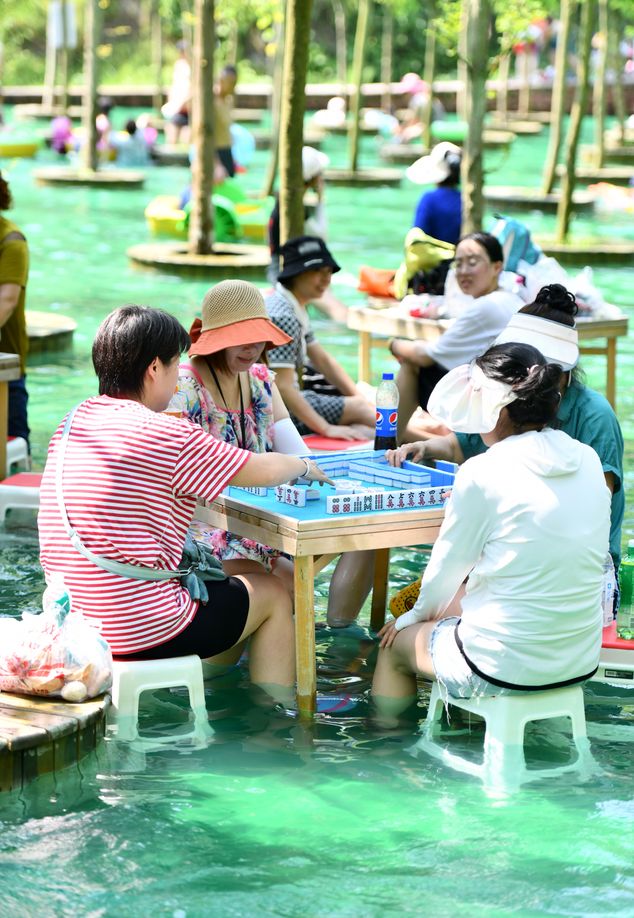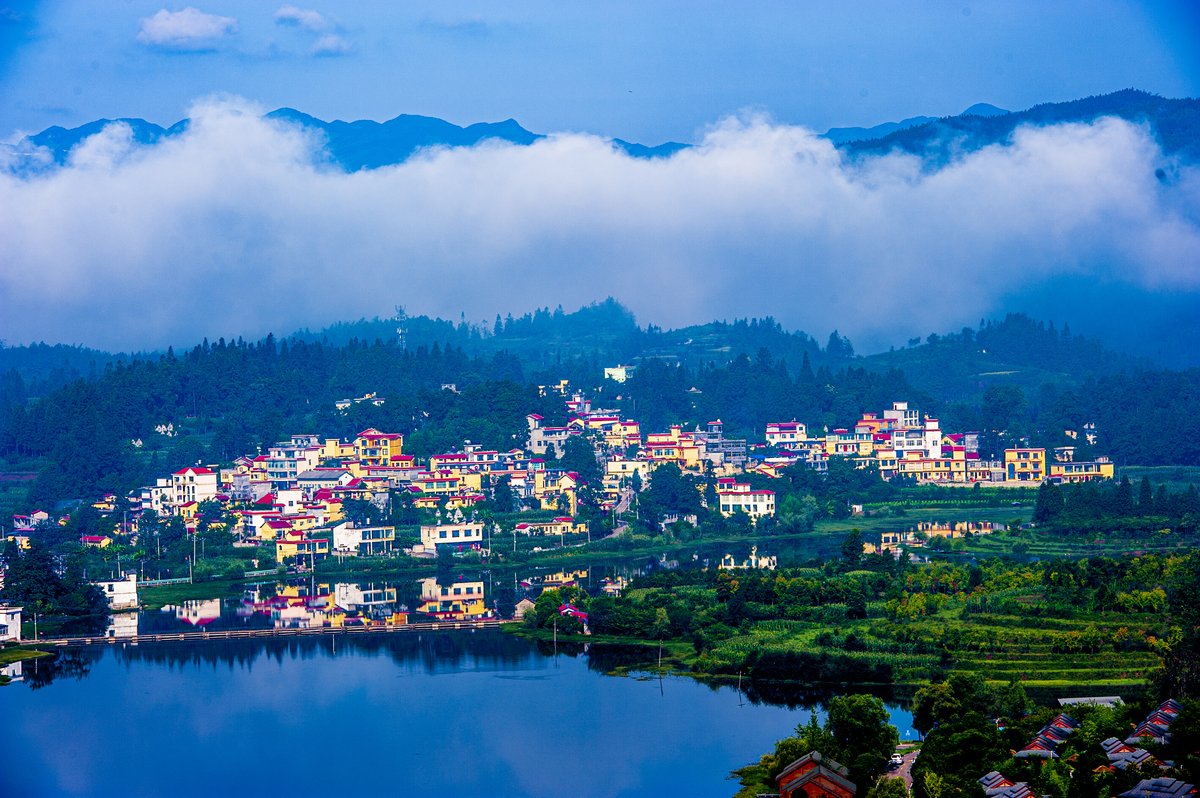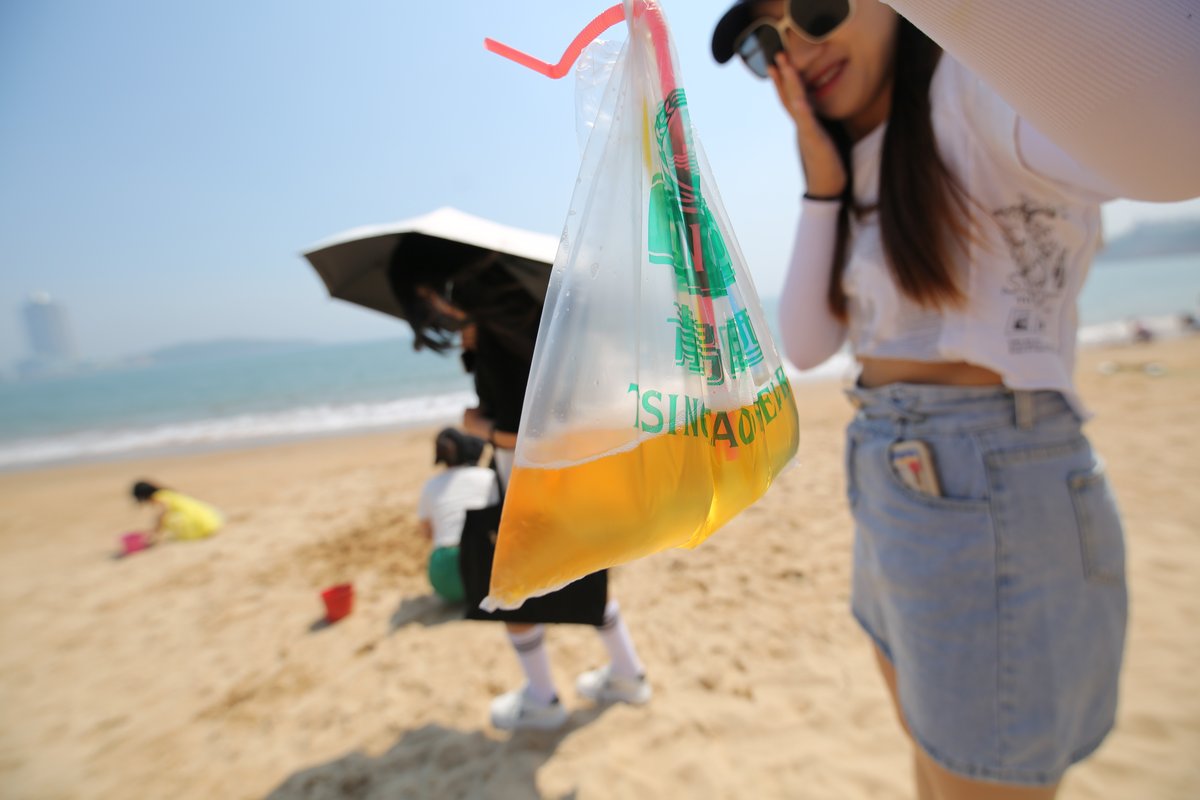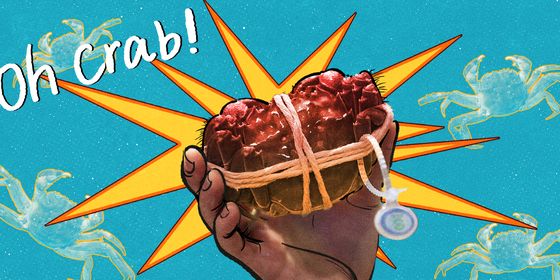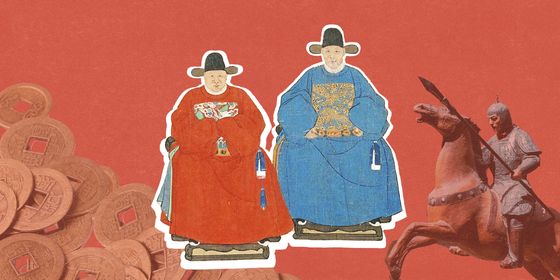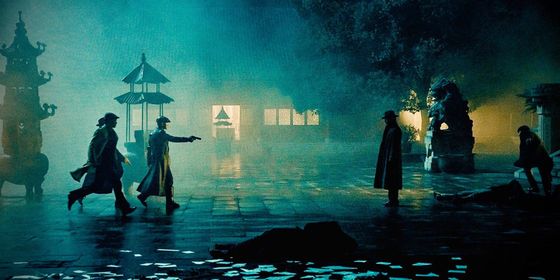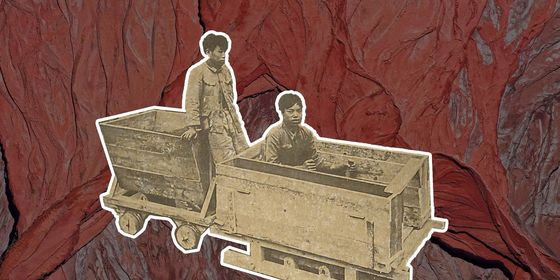From ancient times to now, Chinese have had their favorite locations to escape the summer sun
With unprecedented heatwaves sweeping across China and much of the northern hemisphere this summer, Chinese are as keen as anyone to beat the heat. For China’s emperors back in the Qing dynasty, however, escaping the summer scorch of the capital in Beijing was simple: move north.
From 1703, when the Kangxi Emperor designated Chengde, in today’s Hebei province, as his summer retreat, Qing emperors would move their entire court around 225 kilometers northeast to the mountain city for the hottest months, to avoid the heat or 避暑 (bìshǔ). There, the Qing enjoyed cooler climes amidst forests and mountains, and built themselves “the best of China.” From 1703 to 1792, they built replicas of 72 significant sites from all over the empire in this elite resort, including Lhasa’s Potala Palace and Inner Mongolia’s grasslands.
They also brought poetic scenery from the south of China, such as “the tower of mist and rain (烟雨楼)” modeled after a tower at the Nanhu Lake in Jiaxing and “lotus ferry port (采莲渡)” inspired by the West Lake in Hangzhou. Both the Kangxi and Qianlong emperors loved this summer resort so much that they spent half the year there, breathing fresh air and enjoying freedom from the confines of the palace. In 1994, Chengde mountain resort was declared a UNESCO World Heritage Site.
Nowadays, few Chinese have the luxury of leaving their place of residence for a whole summer, but tourists still have their favorite spots to avoid the ferocious furnace of China’s cities.
The country’s top leaders often visit the seaside resort of Beidaihe, in Hebei province, but in the notoriously steamy Sichuan basin—known as the "basin of fire (火盆)” in summer—locals flee to the nearby Emei mountain. For a thousand years, Daoists have come to this sacred mountain not just to escape the heat, but escape the whole secular world. They plant tea, practice wushu (a Chinese martial art), and seek the secret to eternal life. In the folktale The Legend of the White Snake, even a little white snake came to Emei and ultimately transformed into a fairy.
Today, however, locals come to play mahjong. They find a shallow spot in a mountain stream, lay out bamboo tables and chairs, and set up a sun shade. As the game heats up, they cool their feet in the soothing waters—a feeling described as “being on ice and fire.”
While the sound of the mahjong tiles could disturb those relaxing nearby, it may also attract curious monkeys who call the mountain home. Meanwhile, savvy businesses along the stream offer everything from watermelon chilled in the water to spicy Sichuan wontons.
High altitude and greenery are common characteristics of destinations to escape the heat—before air conditioning, heading to the mountains and forests was one of the only ways to cool down. Liupanshui in the west of Guizhou province has both of these in abundance—the Chinese Meteorological Society even named the area “the cool capital of China (中国凉都)” in 2005. According to the Society, the climate of Liupanshui is “cool, comfortable, moist, fresh, and with moderate UV radiation.”
In the Warring States period (475 – 221 BCE), Liupanshui was home to the Yelang Kingdom (夜郎国). Hidden in the humid climate zone of the Yunnan-Guizhou Plateau with the temperature only 19 degrees Celsius in summer, the people of Yelang were far too comfortable to venture outside, and assumed their kingdom was as big as the whole of China. This even birthed an idiom: “夜郎自大 (yèlángzìdà),” referring to people blessed with innocent ignorance.
Southeast of Liupanshui is the Dadong “bamboo sea (大洞竹海).” As the cool streams are filtered by abundant bamboo roots, locals call such naturally soft water “bamboo root water(竹根水)” and brew it into “bamboo root wine (竹根酒).” Dadong is also famous for its bamboo feast, full of “cooling” dishes: pork fumigated in bamboo and cypress twigs, a rare mushroom that grows in bamboo forests, bean curds in bamboo tubes, and freshly pickled bamboo shoots.
With over 2,100 years of history, the old silk road city Xining in the northeastern part of the Tibetan Plateau in Qinghai province attracts those yearning for a cool yet pristine escape. In summer, Qinghai Lake is at its most stunning, with canola flowers blooming on its shores. One can also walk barefoot into Chaka salt lake, “China’s sky mirror.”
Xining’s staple meat, lamb, is also renowned for its cooling qualities. It is aromatic and not greasy, with even fat and leanness. According to Traditional Chinese Medicine, lamb can help replenish one’s energy when one feels exhausted in the sweaty summer.
Hitting the coast is another way to enjoy lower temperatures. In Qingdao, Shandong province, the cool breeze from the sea is complemented by ice cold, freshly brewed beer named after the city. China’s oldest brewer, Tsingtao Beer, is found in Qingdao and their product is everywhere. Local street stalls even sell freshly brewed batches served in bags. It is joked that beer bags help reduce drunken fights, as they cannot be used as weapons.
While the Chinese word for drinking is “he (喝),” locals in Qingdao pronounce it as “ha,” which also refers to laughter in Chinese. Instead of sipping carefully, a diehard beer fan opens their mouth wide as if laughing to pour in the beverage. Not surprisingly, beer is sold by the kilo here. Locals enjoy visiting one of the many small stands proudly displaying the huge barrels of beer, and enjoying a glass (or bag) from the easy-going “beer uncles.”
Clams, or “gala (嘎拉)” in the local dialect, are a favorite summer snack in Qingdao. Stir-fried with garlic, spices, and yellow wine, spicy gala are the best buddies of every beer drinker in this coastal city. With beer in one hand and gala in the other, you have all the makings of a perfect summer dinner.





